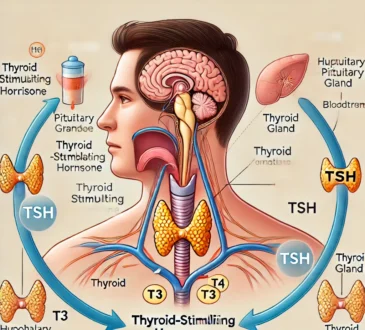The Power of Daytime Napping: Boosting Health and Well-being
In a fast-paced world where time is a precious commodity, the idea of taking a nap during the day might seem like a luxury. However, research has shown that incorporating a brief daytime nap into your routine can offer numerous health benefits that contribute to your overall well-being. In this article, we explore the science behind daytime napping and how it can positively impact your physical and mental health.
The Science Behind Napping:
Human beings are biologically programmed to experience two natural dips in energy levels during a 24-hour period: one in the early afternoon (usually after lunch) and another in the early hours of the morning. These energy lulls are often accompanied by a decrease in alertness and a natural desire to rest. This is where the power of napping comes into play.
“Understanding Acid Rain: Causes, Effects, and Sustainable Solutions”
Health Benefits of Daytime Napping:
- Enhanced Cognitive Function: Short naps, typically ranging from 10 to 30 minutes, have been shown to improve cognitive function, including memory, focus, and problem-solving skills. Napping helps recharge your brain and enhances your ability to retain information.
- Increased Alertness: A quick nap can boost your alertness and concentration levels, making you more productive and efficient in your tasks for the remainder of the day.
- Mood Enhancement: Napping can have a positive impact on your mood by reducing stress, anxiety, and irritability. It’s like hitting the reset button for your emotional well-being.
- Cardiovascular Health: Regular short naps have been linked to a reduced risk of cardiovascular diseases, such as heart attacks and strokes. Napping may help lower blood pressure and promote heart health.
- Boosted Creativity: Napping can stimulate creative thinking by allowing your brain to form new connections and associations between ideas.
Napping Dos and Don’ts:
- Keep It Short: Aim for naps that last between 10 to 30 minutes. This duration is enough to reap the benefits without entering deep sleep stages, which can lead to grogginess upon waking.
- Choose the Right Time: Ideally, schedule your nap during the mid-afternoon energy dip, usually between 1:00 PM and 3:00 PM.
- Create a Comfortable Environment: Find a quiet and dimly lit space where you can relax without disruptions. Use a comfortable pillow and blanket if needed.
- Avoid Napping Too Late: Napping too close to bedtime can interfere with nighttime sleep. Make sure to leave a few hours between your nap and bedtime.
- Listen to Your Body: If you feel the need to nap, don’t ignore it. Your body is signalling that it requires a brief recharge.
- Avoid caffeine and alcohol before bed. These substances can interfere with sleep.
- Get regular exercise. Exercise can help to improve your sleep quality and make you less likely to feel sleepy during the day.
Conclusion:
“Black Coffee: Exploring its Health Benefits, Side Effects, and Nutritional Value”
Embracing the practice of daytime napping can be a game-changer for your overall health and productivity. By carving out a short period of rest during the day, you can boost your cognitive abilities, enhance your mood, and support your cardiovascular health. Remember that napping is not a substitute for a good night’s sleep; rather, it complements it by providing a quick and effective way to refresh your mind and body. So, the next time you feel the afternoon slump coming on, consider indulging in a rejuvenating daytime nap and experience the positive impact it can have on your daily life.





